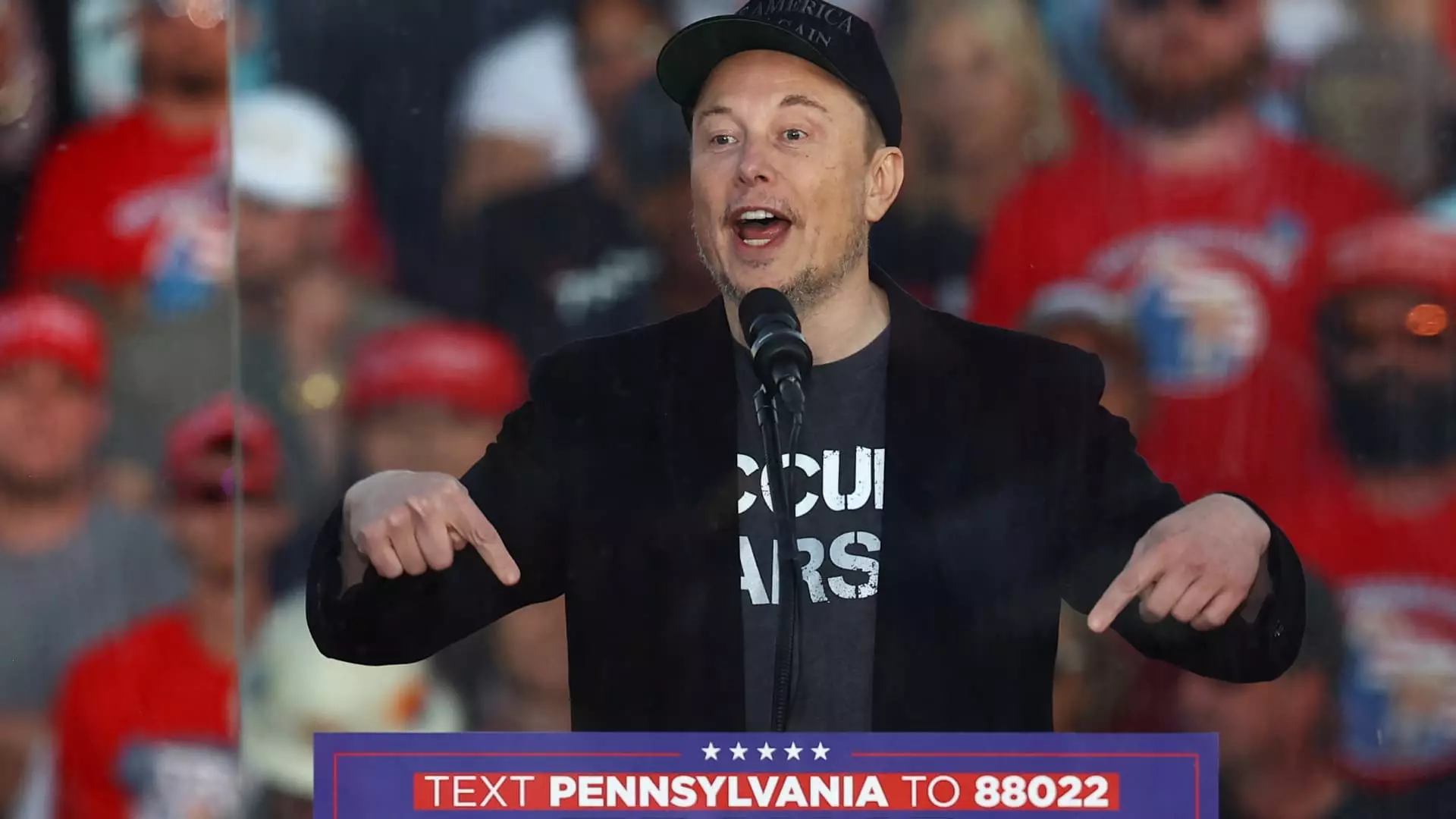In a move that has captured both attention and controversy, Tesla CEO Elon Musk is now aligning himself with Donald Trump in the upcoming presidential election, introducing a financial incentive for voters in swing states. Musk took to X, the social media platform he owns, to promote a $47 referral bonus offered by Trump’s America PAC for each swing state voter referred to a petition requiring personal contact information. The proposal raises eyebrows for its blending of political mobilization with a profit-driven motive.
The financial allure emphasized by Musk in his tweet – “Easy money” for those who refer eligible voters – invites skepticism as it blurs the lines between grassroots campaigning and a commercial transaction. By dangleing a cash reward, the PAC aims to catalyze a grassroots movement that could yield significant returns in establishing voter bases in pivotal electoral states. However, the ethics of incentivizing political support raises questions about the integrity of voter engagement in contemporary politics.
At first glance, the petition itself appears to advocate for First and Second Amendment rights – fundamental liberties enshrined in the U.S. Constitution. However, a closer examination reveals a glaring omission of specifics regarding its intended recipient or the demands it seeks to advocate. This lack of clarity is concerning, as effective petitions typically provide recipients and articulate demands. Instead, the current iteration seems more focused on gathering personal information from potential signers.
Upon signing, participants are directed to a page with voter registration links, yet these links are limited to just seven crucial swing states: Pennsylvania, Georgia, North Carolina, Nevada, Arizona, Michigan, and Wisconsin. This limitation raises the question of whether the PAC is genuinely interested in promoting voter registration or merely harvesting valuable contact information under the guise of political support.
Musk’s America PAC is no stranger to scrutiny. Historically, the PAC has faced investigation from state officials, including the North Carolina Attorney General and the Michigan Secretary of State’s office, due to allegations of misleading practices surrounding the collection of swing-state voter information. These past inquiries have undoubtedly left a stain on its credibility, prompting observers to ask whether the current referral program is a genuine attempt to engage voters or simply a tactic to further political aspirations.
Further complicating matters, Musk claims to be a founder of the America PAC, which has drawn contributions from individuals connected to him. However, a federal disclosure report from July revealed no direct donations from Musk up to June. This lack of financial transparency adds another layer of complexity to his involvement, as the next round of federal disclosures is not set to come out until mid-November, after the election itself.
Engagement in political processes, especially in key battleground states, has significant ramifications as the country heads into a divisive election. The referral scheme aims to reach one million registered voters in swing states, which could markedly influence the forthcoming contest between Trump and his Democratic rival, Vice President Kamala Harris. Musk’s assertion at a recent rally that “this is no ordinary election” underscores the heightened stakes surrounding this political cycle.
Should Trump secure his position as president, he would emerge as the 47th leader of the United States, thus furthering Musk’s interest in this political veteran. Both figures advocate for a vision that places heavy emphasis on constitutional rights, yet the means by which they engage supporters and mobilize resources warrants careful examination.
As the political landscape continues to evolve, the merging of technology, social media, and political engagement poses both opportunities and challenges. Musk’s dual roles as a business mogul and political influencer could redefine the nature of grassroots campaigning, though this blend raises ethical concerns that must not be overlooked. In a time when the integrity of democracy is of paramount importance, any initiative that seeks to gather voter contact information should prioritize transparency, legitimacy, and a genuine commitment to civic engagement over monetary incentives.
Ultimately, vigilant participation by voters, alongside responsible conduct by political committees, will shape the integrity of elections now and into the horizon. As the campaign unfolds, it remains essential for citizens to scrutinize the motivations behind political advocacy and ensure that the preservation of democratic values remains at the forefront of electoral participation.


Leave a Reply